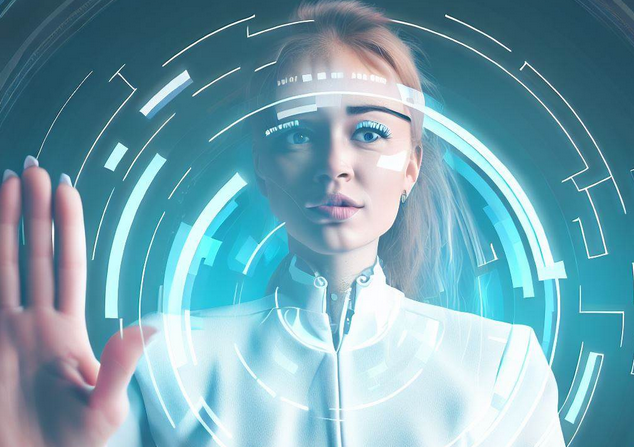The Importance of Mental Health Treatments
Mental health conditions affect a sizable portion of the global population and can have a profound impact on an individual’s well-being and functioning. Mental health treatments can be effective in managing symptoms and improving quality of life for individuals with mental health conditions.
However, the efficacy of mental health treatments can vary depending on a range of factors. This article will explore the current state of mental health treatments, major developments in the last 30 years, and the nature of current frontier work in the Mental TeleHealth sector.
The Efficacy of Mental Health Treatments
Mental health treatments can include psychotherapy, medication, and lifestyle changes. Studies have shown that psychotherapy, such as cognitive-behavioral therapy (CBT), can be effective in treating a variety of mental health conditions, including depression, anxiety disorders, and post-traumatic stress disorder (PTSD). Medications, such as antidepressants and antipsychotics, can also be effective in managing symptoms of mental health conditions. Lifestyle changes such as exercise and stress management techniques can also be effective in managing symptoms.
Major Technological Developments in the Last 30 Years
Over the past 30 years, there have been significant technological advancements that have led to the widespread adoption of the internet and mobile devices, the development of social media platforms, and the rise of artificial intelligence and machine learning. These advancements have greatly impacted the mental health sector by providing innovative and accessible ways to deliver mental health services.
Major Mental Health Developments in the Last 30 Years
While there is still much – very much – to learn, advances in research and technology have led to a better understanding of the underlying causes and risk factors for many mental health disorders. The development of evidence-based treatments such as CBT, dialectical behavior therapy (DBT), and acceptance and commitment therapy (ACT) has also increased the availability of effective treatments. Additionally, TeleHealth services have become increasingly popular, especially during the COVID-19 pandemic, providing convenient and accessible ways for individuals to receive mental health care remotely.
Current Developments in Mental TeleHealth
The COVID-19 pandemic has accelerated the adoption and expansion of Mental TeleHealth services, which provide a convenient and accessible way for individuals to receive mental health care remotely. Mental TeleHealth services are increasingly being used for psychotherapy, medication management, and psychological assessment and testing.
Mental TeleHealth services can be accessed from a wide range of devices, including smartphones, tablets, and computers, making it easier for individuals to receive care from anywhere.
Virtual reality (VR) technologies are being developed to create immersive environments for therapy sessions. These technologies have the potential to enhance the therapeutic experience by providing more realistic and engaging environments for therapy sessions.
Artificial intelligence (AI) is being used to analyze large datasets and provide personalized treatment recommendations. AI has the potential to improve the accuracy and effectiveness of mental health treatments by tailoring treatments to the specific needs of each individual.
Digital therapeutics, such as mobile apps and computer programs, are being developed to supplement traditional therapy or as standalone treatments. These interventions provide individuals with self-guided tools that can help them manage symptoms and improve their overall mental health.
And, the integration of Mental TeleHealth services into electronic health records (EHRs) is being explored to improve care coordination between mental health professionals and other healthcare providers.
Potential Future Developments in Mental TeleHealth
As technology continues to evolve, there are several potential developments in Mental TeleHealth services that could greatly benefit individuals struggling with mental health issues.
One area of development is the use of wearable technology to monitor and track mental health symptoms. Wearable devices such as smartwatches and activity trackers can provide real-time data on an individual’s physical and mental health, allowing mental health professionals to more accurately assess and manage their symptoms.
Another potential development is the expanded use of chatbots and virtual assistants to provide mental health support. These tools could provide individuals with immediate and personalized support when they need it, especially during times of crisis.
The use of telemedicine robots is also being explored to improve access to mental health care in rural and underserved areas. These robots can provide individuals with remote access to mental health professionals, allowing them to receive care without having to travel long distances.
And, the use of brain-computer interfaces (BCIs) is being researched as a potential tool for mental health treatment. BCIs can allow individuals to control devices or interact with virtual environments using their thoughts, which could provide a new avenue for mental health treatment and support.
Technology has brought benefits and potential benefits to individuals struggling with mental health issues. The current state of Mental TeleHealth services is rapidly evolving, and ongoing frontier work is focused on improving the quality, accessibility, and effectiveness of these services. As the Mental TeleHealth sector continues to evolve, it is likely that Mental TeleHealth services will become an increasingly important part of mental health care delivery. By continuing to develop new and innovative approaches to mental health care delivery, we can help to improve the lives of individuals with mental health conditions and reduce the burden of these conditions on society.

